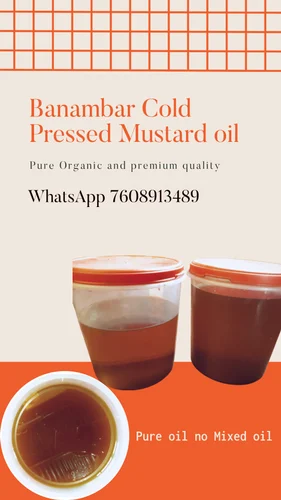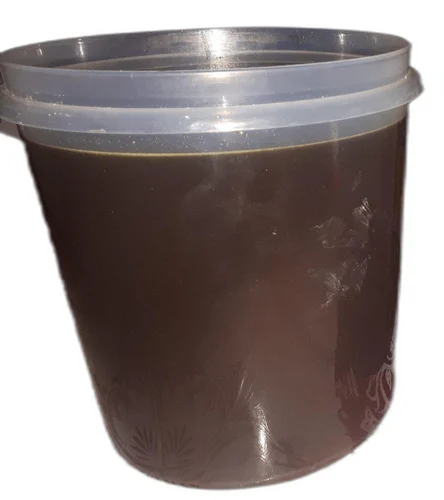1 L Cold Pressed Organic Mustard Oil
₹360.0
| Packaging Size | 1 L |
| Packaging Type | Plastic Jar |
| Nutritional Benefits | Lowers Cholesterol |
| Shelf Life | 6 Months |
| Is It Organic | Yes |
1 L Cold Pressed Organic Mustard Oil.
You must be logged in to post a review.
Q & A
Organic food products are generally considered more sustainable compared to conventional food products. Here are some key reasons why:
Environmental benefits: Organic farming practices focus on promoting ecological balance and minimizing harm to the environment. They prioritize the use of natural fertilizers, such as compost and manure, and avoid synthetic pesticides and genetically modified organisms (GMOs). This helps to reduce chemical pollution in soil, water, and air, and preserves biodiversity.
Soil health: Organic farming methods emphasize soil conservation and improvement. Practices like crop rotation, cover cropping, and the use of organic matter help maintain soil fertility, prevent erosion, and enhance water retention. These practices support long-term agricultural productivity and reduce the risk of soil degradation.
Reduced chemical exposure: Organic food production prohibits the use of synthetic pesticides, herbicides, and fertilizers. As a result, organic foods have lower levels of pesticide residues compared to conventionally grown counterparts. This reduces the potential health risks associated with chemical exposure for both consumers and farmers.
Animal welfare: Organic animal farming standards typically prioritize animal welfare by providing animals with access to the outdoors, natural feed, and the freedom to express natural behaviors. Organic certification standards enforce guidelines for livestock care, including restrictions on the use of antibiotics and hormones.
Climate change mitigation: Organic farming practices can contribute to climate change mitigation. They often rely on techniques such as agroforestry, conservation tillage, and carbon sequestration in the soil, which can help reduce greenhouse gas emissions and increase carbon storage.
However, it's important to note that organic farming is not without its challenges. Organic yields are often lower compared to conventional methods, which can raise concerns about the ability to feed a growing global population. Organic certification can also be costly and time-consuming for farmers, making it less accessible to small-scale producers.
While organic food products offer sustainability benefits, it's essential to consider the broader picture of the food system, including factors like transportation, packaging, and overall consumption patterns, when evaluating the overall sustainability of our food choices.
General Inquiries
There are no inquiries yet.


















Reviews
There are no reviews yet.